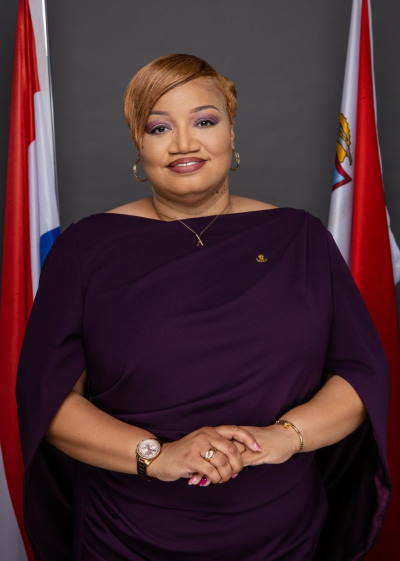 PHILIPSBURG:--- June marks Men’s Mental Health Awareness Month, a time to shine a spotlight on an issue that has too often been left in the shadows. During this month, Minister of Finance Marinka Gumbs delivered an inspiring message that urged us to rethink our approach to men’s emotional well-being. She reminded us of the courage it takes for men to show vulnerability and the critical need for open, compassionate conversations.
PHILIPSBURG:--- June marks Men’s Mental Health Awareness Month, a time to shine a spotlight on an issue that has too often been left in the shadows. During this month, Minister of Finance Marinka Gumbs delivered an inspiring message that urged us to rethink our approach to men’s emotional well-being. She reminded us of the courage it takes for men to show vulnerability and the critical need for open, compassionate conversations.
Challenging Harmful Stigmas
For generations, men have been taught to mask their struggles, to keep their emotions hidden behind a façade of strength. Phrases like "men don't cry" have perpetuated a toxic culture that equates vulnerability with weakness. Minister Gumbs, however, reframed this narrative by declaring, “Vulnerability is not weakness; it is courage.”
This message is more relevant than ever. Studies consistently show that men are less likely than women to seek mental health support, often due to societal pressure to appear “strong.” The consequences can be devastating, leading to loneliness, substance abuse, and even higher suicide rates among men. It’s evident that we must dismantle these outdated stigmas to create a society where men feel free to express their feelings without fear of judgment.
A Poetic Call to Action
One of the most poignant moments in the Minister’s address came when she referenced Rene Koto Wilson’s heartfelt poem, A Man’s Pain. The poem gave voice to the silent struggles countless men face every day. With raw honesty, it spoke of the weight men carry in solitude, a burden made heavier by the demands of societal expectations.
Wilson’s bravery in sharing his experiences serves as a call to action for all of us. It challenges us to listen more, judge less, and offer our support without hesitation. It also reminds us that asking a simple question— “How are you, really?”—can open the door to a much-needed conversation.
The Role of Community and Support Networks
The work of organizations like the St. Maarten Mental Health Foundation plays a critical role in addressing men’s mental health issues. Despite facing numerous challenges, this dedicated organization continues to provide professional care and resources to those in need. Their services are vital in creating safe spaces where men can seek help without fear of stigma or ridicule.
Minister Gumbs commended the foundation for its relentless efforts, reminding us of the importance of community in fostering mental wellness. Whether through professional support or personal outreach, we each have a role to play in building a supportive environment for mental health.
Making Mental Health a Daily Priority
While Men’s Mental Health Awareness Month is a valuable opportunity to raise awareness, Minister Gumbs emphasized that mental health must be a daily priority. Too often, we only address these issues during moments of crisis or designated awareness campaigns. Instead, we need to normalize regular check-ins and emotional openness in our everyday lives.
The challenge lies in creating cultural change. It means teaching young boys that it’s okay to express their feelings, encouraging men to seek help when needed, and providing the necessary resources to make support accessible. By starting these conversations early and often, we can shift the narrative and pave the way for healthier, more connected communities.
A United Commitment to Change
Minister Gumbs closed her remarks with a powerful call to action, urging all of us to break the silence surrounding men’s mental health. “We often expect others to tell us what they’re going through—perhaps it’s time we dare to ask, ‘How are you, really?’” She said. This simple yet profound question embodies the essence of this movement.
Men’s Mental Health Awareness Month is more than just a calendar event; it’s a reminder of our collective responsibility to support each other. Whether it’s through listening, sharing resources, or challenging stigmas, we all have a role to play.
This June—and beyond—let’s honor the courage it takes to speak up. Let’s celebrate vulnerability as a strength. And most importantly, let’s commit to making mental health a shared priority, not just for men, but for everyone. Together, we can build a world where everyone feels seen, heard, and supported.










